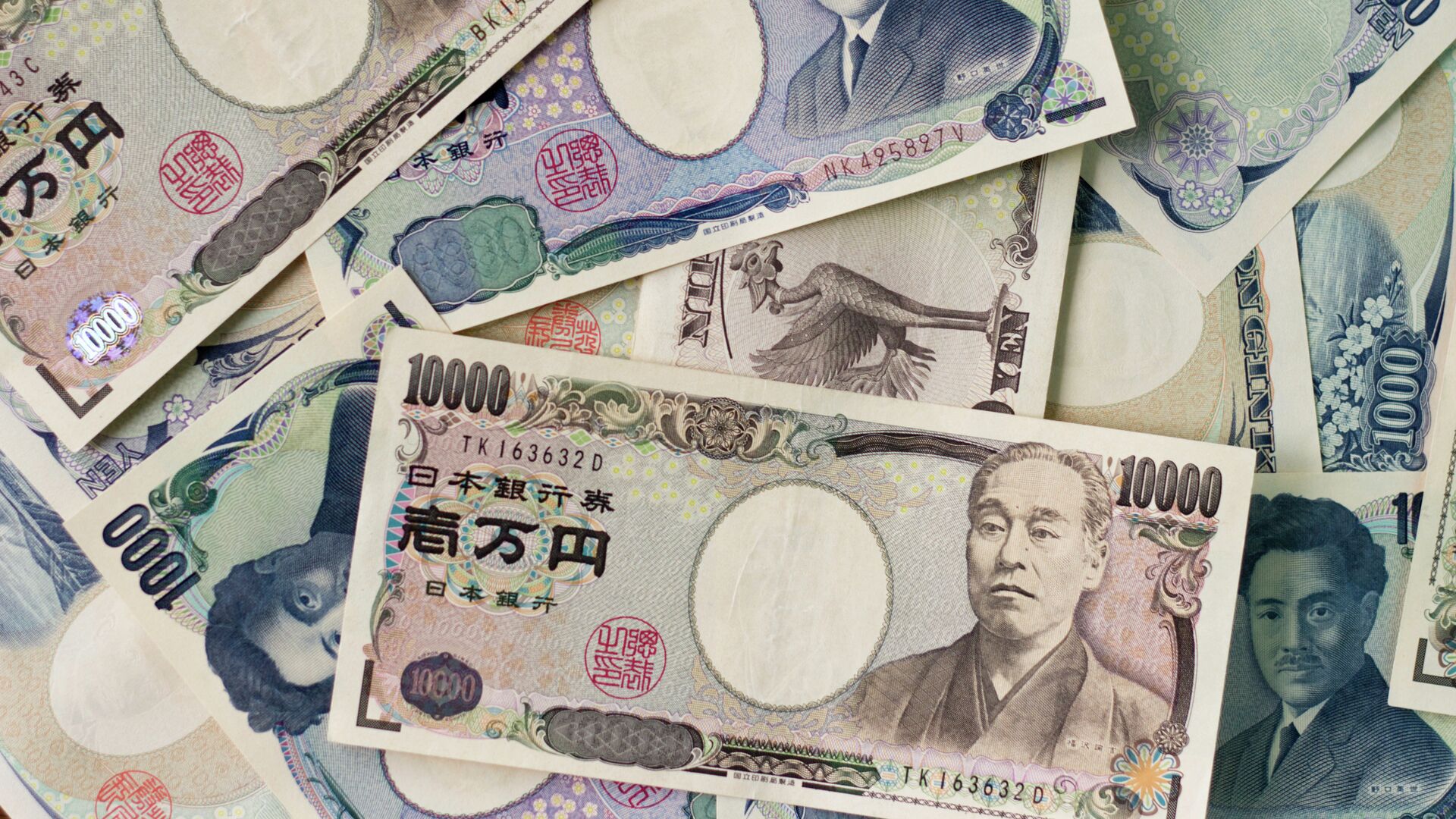https://sputnikglobe.com/20240327/japanese-finance-ministry-vows-resolute-response-to-weakening-yen-exchange-rate-1117576531.html
Japanese Finance Ministry Vows Resolute Response to Weakening Yen Exchange Rate
Japanese Finance Ministry Vows Resolute Response to Weakening Yen Exchange Rate
Sputnik International
The Japanese Finance Ministry is ready to take appropriate actions and respond "resolutely" to the weakening yen exchange rate after the currency hit a 34-year low, Finance Minister Shunichi Suzuki said on Wednesday.
2024-03-27T07:29+0000
2024-03-27T07:29+0000
2024-03-27T07:29+0000
economy
tokyo
japanese finance ministry
yen
japan
https://cdn1.img.sputnikglobe.com/img/102652/51/1026525183_0:540:5184:3456_1920x0_80_0_0_cea2346abe9cd5c99eb7e8dc18b17f8c.jpg
Earlier in the day, the Japanese yen hit 151.97 yen against the US dollar, its record low since July 1990. Tokyo will respond "resolutely" and take appropriate actions "without excluding any options" to address "excessive weakness" in the yen, Suzuki told reporters, Japan's Kyodo news agency reported. The government will be closely monitoring market developments with a "high sense of urgency," the Japanese finance minister added. The weakening Japanese currency reportedly reflects the contradiction between the country's central bank's policy on maintaining low interest rates and the Federal Reserve's commitment to arrest inflationary pressure by increasing them significantly. On March 20, the Bank of Japan raised the key rate for the first time in 17 years, to 0-0.1% from minus 0.1%, and kept its soft monetary policy, but the expected rise of the national currency did not take place and yen continued its record lows. Suzuki has said that the Japanese government was mulling all possible measures in the event of increased market volatility, adding that the Japanese Finance Ministry remained in close contact with monetary regulators of other countries, including the United States.
https://sputnikglobe.com/20231106/japan-may-sacrifice-own-defense-industry-to-continue-buying-us-weapons-as-yen-plummets-1114751212.html
tokyo
japan
Sputnik International
feedback@sputniknews.com
+74956456601
MIA „Rossiya Segodnya“
2024
Sputnik International
feedback@sputniknews.com
+74956456601
MIA „Rossiya Segodnya“
News
en_EN
Sputnik International
feedback@sputniknews.com
+74956456601
MIA „Rossiya Segodnya“
Sputnik International
feedback@sputniknews.com
+74956456601
MIA „Rossiya Segodnya“
japanese finance ministry, vows resolute response, weakening yen exchange rate
japanese finance ministry, vows resolute response, weakening yen exchange rate
Japanese Finance Ministry Vows Resolute Response to Weakening Yen Exchange Rate
MOSCOW (Sputnik) - The Japanese Finance Ministry is ready to take appropriate actions and respond "resolutely" to the weakening yen exchange rate after the currency hit a 34-year low, Finance Minister Shunichi Suzuki said on Wednesday.
Earlier in the day, the Japanese yen hit 151.97 yen against the US dollar, its record low since July 1990.
Tokyo will respond "resolutely" and take appropriate actions "without excluding any options" to address "excessive weakness" in the yen, Suzuki told reporters, Japan's Kyodo news agency reported.
The government will be closely monitoring market developments with a "high sense of urgency," the Japanese finance minister added.
The weakening
Japanese currency reportedly reflects the contradiction between the country's central bank's policy on maintaining low interest rates and the Federal Reserve's commitment to arrest inflationary pressure by increasing them significantly.

6 November 2023, 11:12 GMT
On March 20, the Bank of Japan raised the key rate for the first time in 17 years, to 0-0.1% from minus 0.1%, and kept its soft monetary policy, but the expected rise of the national currency did not take place and yen continued its record lows.
Suzuki has said that the Japanese government was mulling all possible measures in the event of increased market volatility, adding that the Japanese Finance Ministry remained in close contact with monetary regulators of other countries, including the United States.



